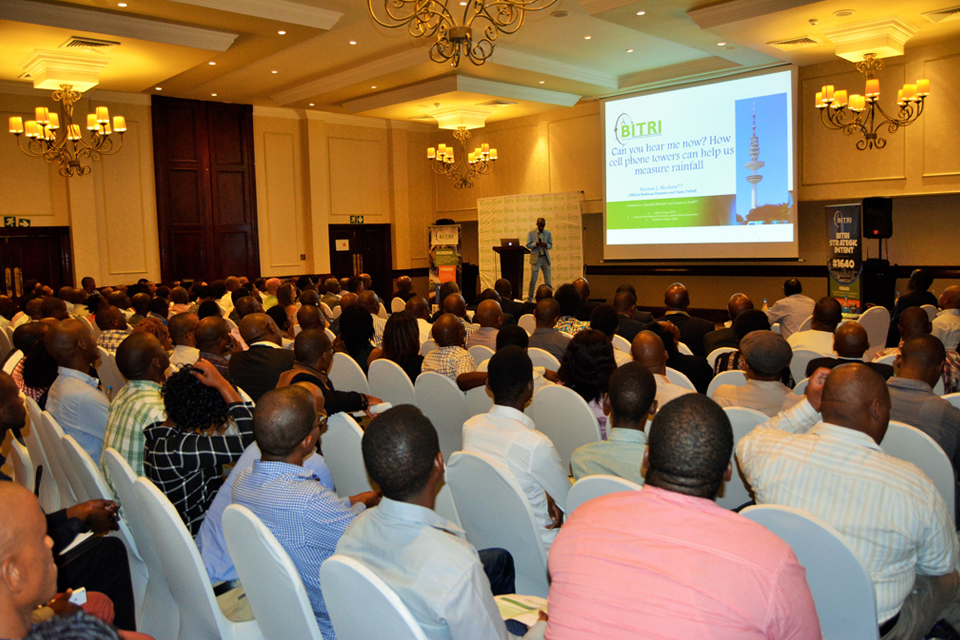April 6, 2017

 The audience at all ears during Dr Machete’s presentation.
The audience at all ears during Dr Machete’s presentation.
Botswana Institute for Technology Research and Innovation (BITRI), Climate Change Division has validated a way to measure rain from cellular phone signals. BITRI Senior Researcher – Climate Change and Extreme Weather Events Science and Risk Analysis, Dr Reason Machete, who is leading the study said the research was prompted by the fact that measurements of rainfall are still lacking over some parts of the country despite the fact that such data is critical for creating accurate weather forecasts and for managing water and agricultural resources. He was presenting at a BITRI seminar at Avani Hotel in Gaborone on Tuesday 7 March. His presentation titled “Can you Hear Me Now? How Cellphone Towers Help us Measure Rainfall” showed that many areas of the country lack good rain gauge networks. When this new BITRI technology is fully rolled out, precipitation intensity maps across the entire country at almost real time will be constructed; an indispensable input to flood forecasting.
Since 2015, researchers at Climate Change Division have been exploring ways to measure rainfall from cellular communication radio signals. “Our cellular phones send frequent radio signals from transmitting antennas to receiving antennas, and rain can interfere with those signals. When it’s raining, the raindrops absorb a portion of the radio wave and scatter some of its energy. This attenuation of the radio signals grows stronger as the number and size of raindrops increases. Hence, we can reconstruct rainfall data across a given area simply by knowing to what extent radio signals were attenuated between cell phone towers” said Dr Machete, lead researcher for the study.
Welcoming the guests to the seminar the Permanent Secretary in the Ministry of Tertiary Education Research, Science and Technology, Dr Theophilus Mooko said Climate variability and change are serious challenges to sustainable development. He said climate change brings floods and droughts as recently Botswana battled with the tropical storm Dineo whilst early last year we were battling drought with Gaborone Dam drying up. Dr Mooko said climate fluctuations are a serious challenge that have capacity to destroy lives and livelihoods. “Timely provision of weather information at the appropriate spatial scale is crucial for both tactical and strategic decision making by various stakeholders such as farmers to aid their adaptation against climate change, water resources and ecosystems planning and management.” said Dr Mooko.
In his closing remarks, the Deputy Permanent Secretary Ministry of Environment, Natural Resources Conservation and Tourism Mr Thabang Botshoma applauded the good work BITRI is doing and promised to avail assistance that Dr Machete’s team may need to carry out the research.

